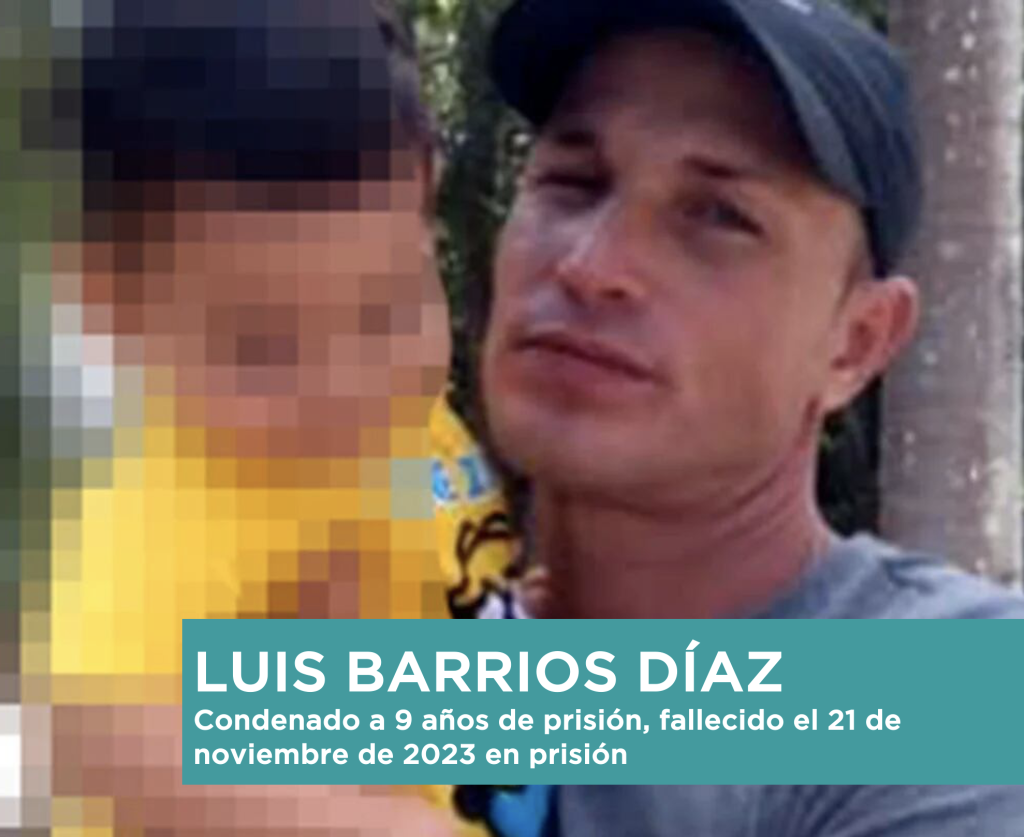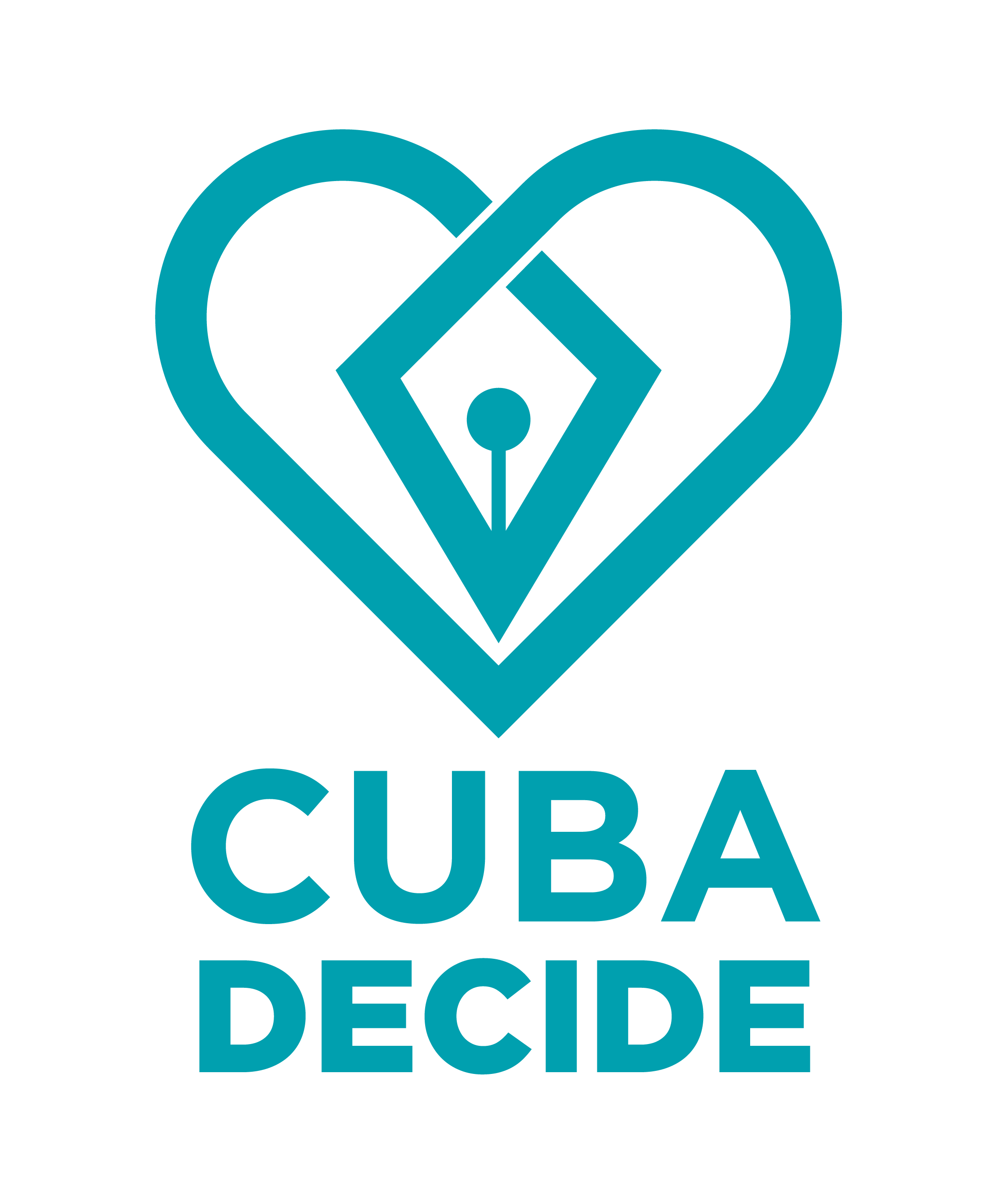This website uses cookies so that we can provide you with the best user experience possible. Cookie information is stored in your browser and performs functions such as recognising you when you return to our website and helping our team to understand which sections of the website you find most interesting and useful.
Human rights of people arbitrarily deprived of liberty for political reasons
POLITICAL PRISONER CARLOS MICHAEL IN CRITICAL CONDITION ON 21ST DAY OF HUNGER STRIKE
10 July, 2024Monseñor Rolando Álvarez Gana “Premio Oswaldo Payá: Libertad y Vida” en el Aniversario 12 del crimen de estado en Cuba
22 July, 2024Hearing at the Inter-American Commission on Human Rights
Session Period #190
July 8, 2024
Human rights of people arbitrarily deprived of liberty for political reasons
Rosa María Payá:
We congratulate the commission on its 65th anniversary of safeguarding human rights and thank you for your sustained attention to the Cuban case.
We begin with the video testimony of Carlos Michael Morales Rodríguez.
He is Carlos Michael Morales Rodríguez, an independent journalist and promoter of Cuba Decide. Today he is on his 19th day of a hunger strike at the medical post in Guamajal prison in Villa Clara. Eighteen days ago, we requested an urgent appeal on his behalf from this commission, and we have yet to receive a response. Morales recently left prison after serving a sentence of 2 years and 10 months for peacefully protesting during the massive demonstrations on July 11, 2021. But he was detained again for his posts on Facebook. His lawyer requested a habeas corpus, which has already been rejected by the Provincial Court of Villa Clara. Only international pressure can save Carlos.
My name is Rosa María Payá. I lead the Foundation for Pan American Democracy, appearing before you today along with the Latin American Youth Network for Democracy (Juventud LAC), the Center for Action and Defense of Human Rights (CADEF), Impulsa Latinoamérica (IL), Civil Rights Defenders (CRD), the Patriotic Union of Cuba (UNPACU), the Patmos Institute (IP), and Faro Austral (FA) to present the critical situation of political prisoners in Cuba today.
Next, Juan Carlos Vargas, Director of the Complaints Center of our Foundation, also known as Cuba Decide Defense or DefensaCD, will present a summary of monitoring data focusing on the last two years up to the present.
Juan Carlos Vargas:
Our Complaints Center publishes monthly reports documenting incidents of human rights violations by the State, including harassment, persecution, beatings, expulsions from workplaces or study centers, attacks, and more. Since July 2020, we have recorded more than 5,370 incidents, of which 48% have been arbitrary detentions, many of them violent.
From January 2022 to last April, in the past 28 months alone, we documented 3,234 incidents of human rights violations. In 2023 (see here Annual Report), we detected a 65% increase in incidents, and in the first four months of 2024, we recorded 702 violations, already 33% more than in 2023.

An alarming reality is that the majority of the violations recorded in the past 16 months have been committed against women. Of the 1,577 incidents in 2023, 860 were violations against women’s rights. So far this year, 416 of the 702 recorded incidents involved women, who were mistreated, tortured, humiliated, harassed, and persecuted by state representatives.






On the other hand, more than 53% of the violations recorded in the past 28 months correspond to arbitrary detentions. There have been at least 1,723 detentions against activists, political opponents, artists, communicators, and human rights defenders in Cuba.
It should be noted that these figures only correspond to the cases we have been able to verify and represent a fraction of the ongoing violations perpetrated by the state in Cuba. In May 2024, Prisoners Defenders recorded 1,113 political prisoners. The following information is derived from the total:
- Minors: 30 in total (29 men and 1 woman). Twenty-seven of them are still serving sentences, and 3 are being prosecuted (with precautionary measures without any judicial oversight).
- Women: 117 people, including 2 transgender women (who serve their sentences in men’s prisons).
These figures not only aim to make these injustices visible but also to make an urgent call to the international community to recognize and respond to the grave situation in Cuba.
Rosa María Payá:
As we have shown, the number of arbitrary detentions is dramatically increasing. The number of sentences for political reasons is also growing. The State and all public institutions have omitted any action to, for example, through the judicial system, investigate and sanction ex officio or upon request the hundreds of arbitrary detentions. The state has failed in all cases to ensure due process and minimum legal guidelines to guarantee victims of arbitrary detentions access to justice. Of course, there have been no sanctions for those responsible for the violence or for the public authorities who incited and ordered it.
Next, we will present the testimonies of Emilio Román, the father of three political prisoners, one of whom, Emiyoslan, was sentenced while a minor; Ángel Delgado, the husband of political prisoner Lisandra Gogora, mother of five children; Lisdany Rodriguez Isaac, a political prisoner currently pregnant; Javier Delgado, a political prisoner living with a physical disability; and María Julia Beltrán, the mother of the young political prisoner Julia Mazola.
We begin with Emilio Román’s video.
Next, we will hear the testimony of Ángel Delgado, husband of Lisandra Góngora, who recounts how Lisadra was arbitrarily detained while injured, placed in a psychiatric center known as Mazorra against her will, and subjected to chemical and physical torture among other abuses:
Now let’s listen to Lisdany Rodriguez, whom Cuban state agents pressured to force an abortion:
Our center has requested a precautionary measure that the IACHR has not issued, despite Lisdany still being in danger.
José Daniel Ferrer, Coordinator of UNPACU and Cuba Decide and beneficiary of a Precautionary Measure (MC 484-11) issued in 2012, was detained on July 11 and disappeared for months. Over the past three years, there have been many times when we did not know if he was alive or dead. His daughter, Martha Beatriz Ferrer, will give her testimony next:
Cuban political prisoners are in danger of death and are dying, as happened to Luis Barrios, a 36-year-old political prisoner who was murdered in November 2023 through sustained denial of medical assistance until it was too late, along with the inhumane conditions he was subjected to.



The time of 100 hearings would not suffice to recount the horrors experienced by Cuban political prisoners.
We want, at least, to denounce three of the most common repressive patterns:
- Some have been harassed in prison by state agents with the blackmail that they can only leave if they agree to leave Cuba. This is the case of the father and daughter, Felix and Sayli Navarro, sentenced to 9 and 8 years in prison, respectively, for going to the police station to ask about the youths who disappeared during the protests. Felix and Sayli have refused to leave the country, and the regime keeps them in prison.
We denounce the pattern of blackmailing human rights defenders with prison or exile. A pattern used hundreds of times in recent years to force activists into exile and also against dozens of political prisoners who remain in prison. We warn that the regime intends to use the bodies of political prisoners as bargaining chips to obtain concessions from the international community, a methodology of terror that has also been exported to the Ortega-Murillo dictatorship in Nicaragua and has been perfected with the new migration law, through which the Cuban dictatorship, not content with forcing activists into exile, now threatens to strip them of their nationality.
- We also denounce the repressive pattern of abuse and police harassment against the families of political prisoners, many of whom also suffer arbitrary detentions or have been forced into exile.
- Finally, we reiterate the use of physical, psychological, and even pharmacological torture against political prisoners, testimonies of which we have provided during this hearing. These three repressive patterns are only a fraction of the variety of ways the Cuban regime practices state terrorism against citizens, as stated by Secretary-General Luis Almagro. Terror especially severe against Cuban political prisoners.
These three repressive patterns are just a fraction of the various ways in which the Cuban regime practices state terrorism against its citizens every day, as stated by Secretary General Luis Almagro. This terror is especially severe against Cuban political prisoners.
RECOMMENDATIONS
We request this honorable commission to:
- Demand the release of all documented political prisoners, an end to violence, and state terrorism against Cuban citizens.
- Request an Extraordinary Session of the OAS Permanent Council to address the situation of political prisoners and the extrajudicial executions for which the Cuban state is responsible, documented by this Commission, such as the case of Oswaldo Payá and others.
- Create a Special Monitoring Mechanism for Cuba as soon as possible. We once again emphasize the urgency of creating this mechanism to respond promptly and effectively to the challenges posed by the grave situation of systematic human rights violations in Cuba. We have been making the same requests to this Commission for years, and not once in the last two years have we heard of an attempt by the IACHR to bring the most critical human rights situation on the continent before the Permanent Council. There are more people deprived of liberty and suffering torture in Cuba for political reasons than in the rest of the Americas combined.
We urge you to take action because we are here demanding justice, knowing that the current Cuban state leaders lack legitimacy in both origin and practice and are not prepared to be just or defend human dignity.
POSTERIOR TESTIMONIES
To aid comprehension, we will now present three additional cases/testimonies. These are the cases of Javier Delgado, a political prisoner living with a physical disability, for whom a precautionary measure has been requested; Maria Julia Beltrán, mother of the young political prisoner Julia Mazola; and Mario Alberto Hernández Leyva, who will be presented by the person in charge of his case in our complaints center, Yunier Suárez.
Next, Javier Delgado:
We will listen to the audio from last March 7 about an incident that occurred in prison:
We have just heard the desperate voice of María Julia Beltrán on the day of the attack on her son. This Commission has just granted the precautionary measure to Julian due to the constant torture he is subjected to in his unjust imprisonment in Cuba.
Let’s now listen to the testimony sent for this hearing by his mother:
Finally, we will hear the case of political prisoner Mario Alberto Hernández Leyva in the voice of the Deputy Director of the Complaints Center, Yunier Suárez:

